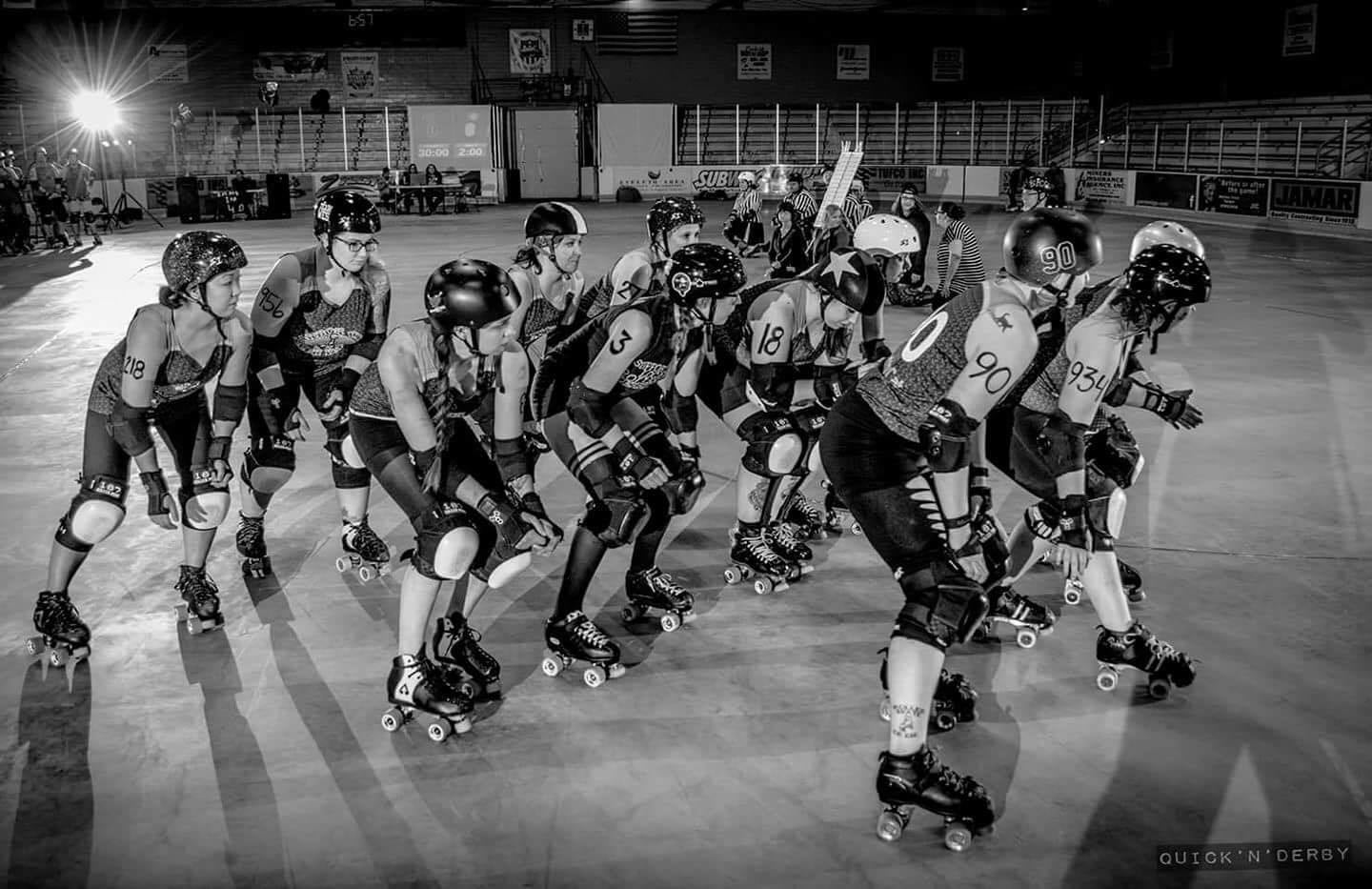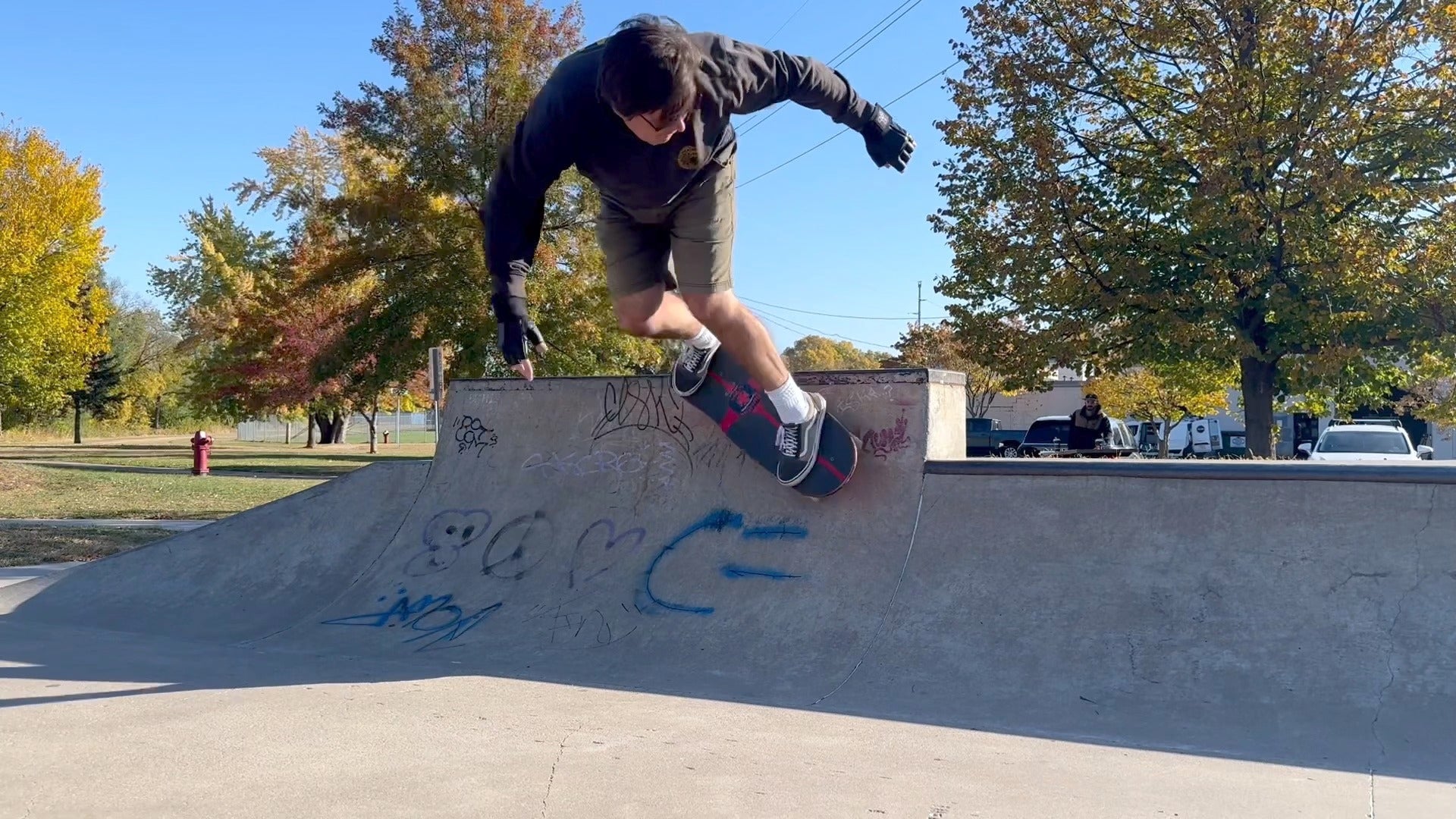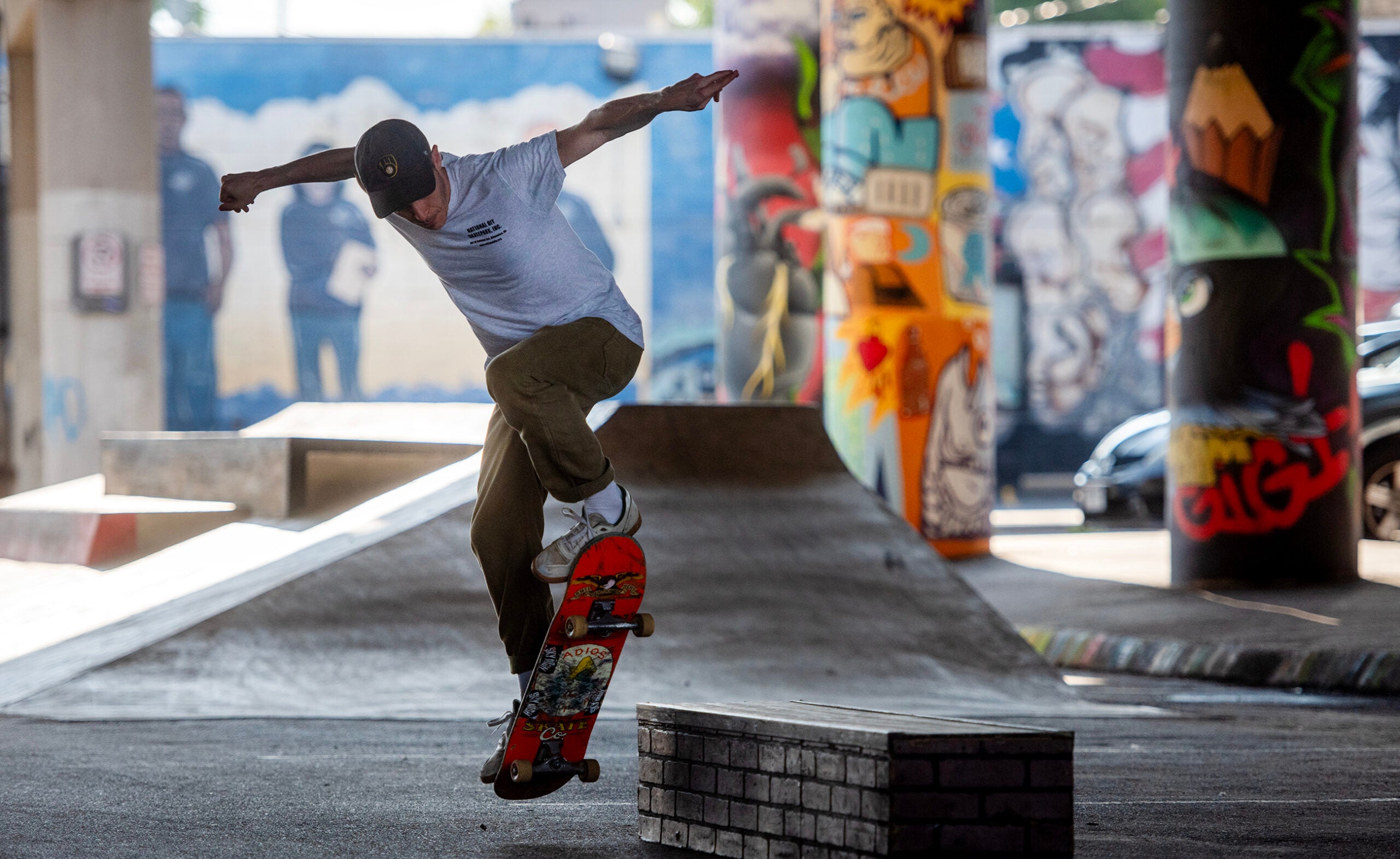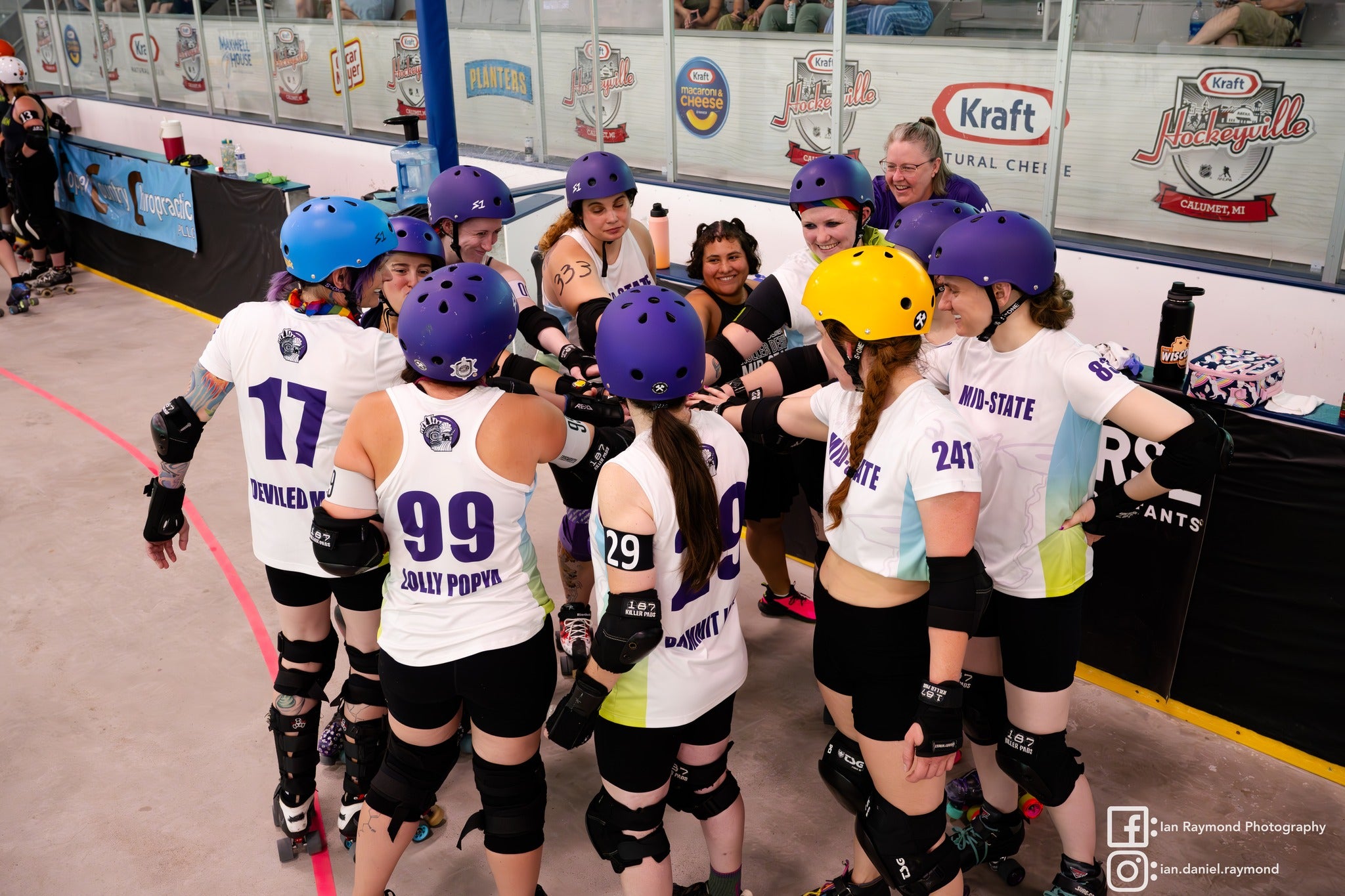Roller derby got its start in the early 20th century. The popularity of the sport grew during the 1960s and 1970s. But, its modern-day counterpart isn’t about the glitz, glamour and theatrics as seen on television.
The Harbor City Roller Dames hit the skating rink to practice for upcoming bouts with teams across the Midwest. Skating Captain Kate Minier said the sport saw a renaissance in the early 2000s. The Harbor City Roller Dames held their first matches almost a decade ago.
“It’s a great community,” she said. “It’s a great way to get into a group sport, especially a contact sport at an adult level that’s amateur level. I didn’t grow up playing group sports so I don’t have any of those years of experience. To come into trying to get on some co-ed league of some random sport that I’ve never done. In roller derby, we all kind of start at the same basic level so it’s really easy to get into, to work on your skill and make lasting friendships as you go!”
News with a little more humanity
WPR’s “Wisconsin Today” newsletter keeps you connected to the state you love without feeling overwhelmed. No paywall. No agenda. No corporate filter.
The television show “RollerGames” broadcast the sport in the late 1980s with glittery outfits, colorful commentary and a predetermined winner. The show was more about theatrics then the sport. But, that’s not the case for the Dames and Caitie Dahl. Dahl is a blocker and jammer on the team, better known by her skater name “Dahlinquent.”
“We’re athletes, and we train. We take care of our bodies. We work on endurance and strategy and our physical abilities, and we just want to be taken seriously,” Dahl said.
Dahl, like many of the girls on the team, said they skate because they love it and get a lot of it.
“Oh my God. I get so much out of roller derby….It’s the first team sport I’ve ever been involved with. It’s so accepting and welcoming of every kind of person, no matter your age, gender, physical ability, everything. So it’s just a really good community of people and the sport is awesome, the camaraderie is awesome, and the networking is awesome,” she said.
Everything except the one downfall of derby duels: injuries.
The goal of any derby bout is to make laps around your opponent without getting knocked off the track by skaters from the other team. Safety is crucial to everyone involved. All the girls wear helmets, knee pads, elbow pads, wrist guards and mouth guards.
Michelle Comnaughty, assistant manager of the Dames, is better known to teammates as Maulie McNaughty. She said her worst injury came just days after she made it on the team.
“I fell back on my wrist and broke my wrist even with my wrist guard on,” she said. “But I kept skating, I just couldn’t do contact while I had my cast on because they were concerned that I might accidentally hit somebody and take them out with my cast. It’s pretty hard and heavy.”
After practice, the girls stretch out – bruised and exhausted. For some, like Alex “Axel” Ross, roller derby is the place to work out frustrations from daily life.
“My goal is to relieve some work stress. I can’t bring that here. You know? So I kind of have to put myself in the mental space to play the game and enjoy it, be challenged by it and have fun with it,” Ross said.
Ross feels roller derby has come a long way as a sport.
“It has evolved so much I think from what many people remember as something that was so much about showmanship and kind of craziness,” she said. “There is so much strategy involved and so much thought that goes into how different teams even play because there are so many different kinds of derby.”
The Dames participate in flat track derby, but teams on the west coast and southern states take part in banked track derby. Ross said each skater brings their own unique moniker and skills.
“We are all just pieces of glitter in a water bottle that are floating around randomly,” she said.
Maybe there’s still some glitz left in the game. The way these girls roll, they hope their skill for the sport will make a name for the Dames.
To learn more about roller derby in the Twin Ports or to talk to the recruitment co-chair Maulie McNaughty you can email JoinHarborCityRollerDames@gmail.com.
Wisconsin Public Radio, © Copyright 2026, Board of Regents of the University of Wisconsin System and Wisconsin Educational Communications Board.





